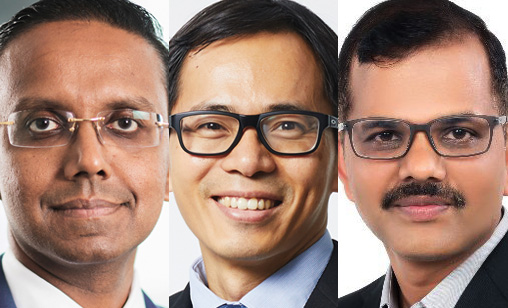Addendum
Singapore ensures the show goes on
February 1st 2022
It is the region’s largest and most influential international aerospace and defence showcase, but this year’s Singapore Airshow will be a much watered down version of the biennial gatherings of the past. Read More » With the pandemic still dogging the region and Omicron cases yet to significantly abate in Singapore many international exhibitors are staying away in 2022.
Deep pocketed conglomerates such as Airbus and Boeing will be at the airshow, but the 360 companies listed as exhibitors on the airshow’s website compare with 930 in 2020, only weeks before COVID-19 was beginning to take hold across the world. Even that figure was down some 44% from the same gathering in February 2018.
 |
Attendees in 2022 must take a daily rapid antigen test for entry. As well, the gathering will be truncated by eliminating public days. Typical of aerospace companies deciding against travelling to Singapore this time around is Bombardier. It cancelled its commitment because of the continuing spread of Omicron. Also not included in the exhibitor list this year is the Commercial Aircraft Corporation of China (COMAC). It also cancelled in 2020 – apparently because of tight quarantine rules in China.
Association of Asia Pacific Airlines director general, Subhas Menon, had planned to be part of the traditional pre-show summit for regulators and airline leaders and also attend the airshow, but decided against being in Singapore after the summit was cancelled.
An event that did take place in the lead-up to the airshow week was an online FlightGlobal webinar where one panelist put forward the view that the aerospace sector was at a “critical juncture” in the march towards a significant, disruptive technological shift.
The panel, held in partnership with CFM International, featured Airbus Asia-Pacific president, Anand Stanley, ST Engineering commercial aerospace president, Jeffrey Lam, and GE Aviation’s general manager for engineering, Vikram Reddy.
GE’s Reddy, asked if he predicted a step change in the industry in the next decade pointed to trends in engine design and innovation, including electrification and unducted turbofans, and said: “it is the most important, most accelerated transition that has happened in history. If you see the combination of all these, the next 10 to 20 years will be extremely different from the last 30-40 years.”
Airbus’s Stanley said momentum has taken off “quite a bit” in multiple technology factors. “If we look at today’s technologies, decarbonization is on everyone’s mind. It is accelerating at a very fast pace. The question is ‘what more can we do’? It’s not either/or. It’s a combination of things.”
ST Engineering’s Lam offered a slightly different perspective when he said the industry was not yet at a “revolutionary stage”, but a “revolutionary evolution”. “We are seeing a confluence of many factors, including digitalization, sustainability, propulsion, technology, electrification. Even COVID-19 has contributed to moving faster ahead in many of these areas,” he said.
Psychic Rowan says:
April 16th 2024 12:16pm